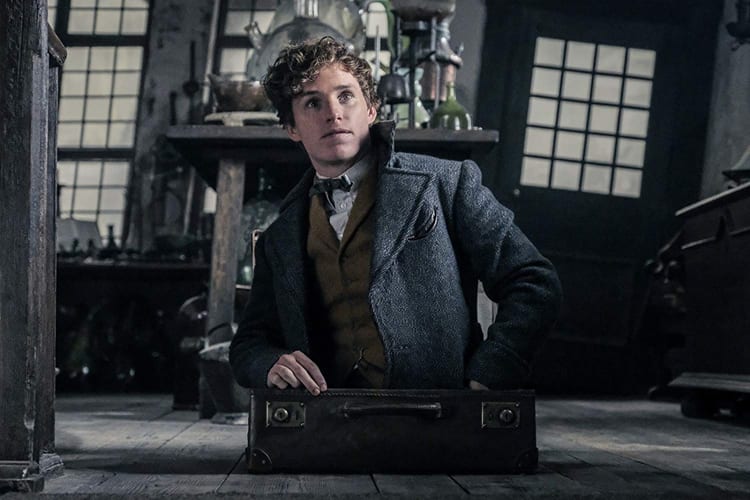One of the most impressive things about the Harry Potter movie franchise was its consistency. Eight films over 10 years and there wasn’t a bad one in the bunch. Part of the credit is surely due to J. K. Rowling: the Harry Potter books are a worldwide phenomenon for good reason. She’s a great author, and she set up an amazing, magical world for the wizarding stories to unfold in. For the “Fantastic Beasts” franchise, though, she’s not just writing the source material—these movies require her to be a great screenwriter, and “The Crimes of Grindelwald” is her toughest challenge yet.
The first “Fantastic Beasts” was mostly set-up, as is the custom now that we live in in a world where every movie becomes a universe and every story needs a sequel. It introduced protagonist Newt Scamander and a host of supporting characters who were more interesting than him. Scamander is no Potter, and “The Crimes of Grindelwald” only exacerbates that issue: he’s even more boring in this larger adventure. Harry was a compelling protagonist because he really was a student at heart, someone learning the right and wrong ways to act on his passions. Newt is already a quaint, perfect little wizard; a moral paragon with no need for growth. There are no reasons to become invested in him.
Maybe that’s why he doesn’t get to enjoy his name in the title. No, these movies are about the “Fantastic Beasts”—or, at least they were. The plot of the first movie revolved around magical animals, but the second is mostly about another struggle between good and evil. The presence of the beasts now feels forced; they’ve been demoted to little more than cheap plot devices. It’s a baffling move to still name the franchise after them. There’s just too much going on in “The Crimes of Grindelwald” for the beasts to take center stage.
That’s because J. K. Rowling doesn’t know how to structure a screenplay. Steve Kloves, the unsung hero who scripted seven of the eight Harry Potter movies, could take Rowling’s increasingly robust narratives and perfectly distill them into two-hour films. Rowling’s screenplay for “Grindelwald” doesn’t feel like it was built for the screen—instead, it feels like she wrote a long, detailed book, and then chopped off 75% of it for time. The plot is difficult to follow not because it’s convoluted, but because it’s missing information. It’s hard to care about the skeleton of a story: there are enough subplots, characters, and backgrounds here to fill a massive book, but “The Crimes of Grindelwald” is skimming through it.
It doesn’t help that only a couple of the performances are memorable. Eddie Redmayne’s performance consists entirely of speaking softly and not making eye contact. Jude Law’s young Dumbledore isn’t anything to write home about; Katherine Waterston and Zoë Kravitz barely have anything to do this time around. Only Dan Fogler, returning as Jacob Kowalski the muggle (No-Maj is a dumb term and should not be named), is having any discernible fun.
So, in the absence of a well-told story or captivating characters, “Grindelwald” goes the “Star Wars Story” route, randomly flipping through a Harry Potter encyclopedia and referencing lore to satiate fans. As pandering fan service, it’s decent. As a Harry Potter movie, it’s the worst one. Nothing has been improved upon but the special effects.
There are some scenes in “The Crimes of Grindelwald” that take place in Hogwarts, and they made me yearn for the Harry Potter days of old, when different filmmakers were putting good spins on great material. Now it’s just David Yates taking zero risks to bring a flawed screenplay to life. The Harry Potter movies used to have personality and gusto—this “Fantastic Beasts” is a limp rag.
★★ (2/5)




